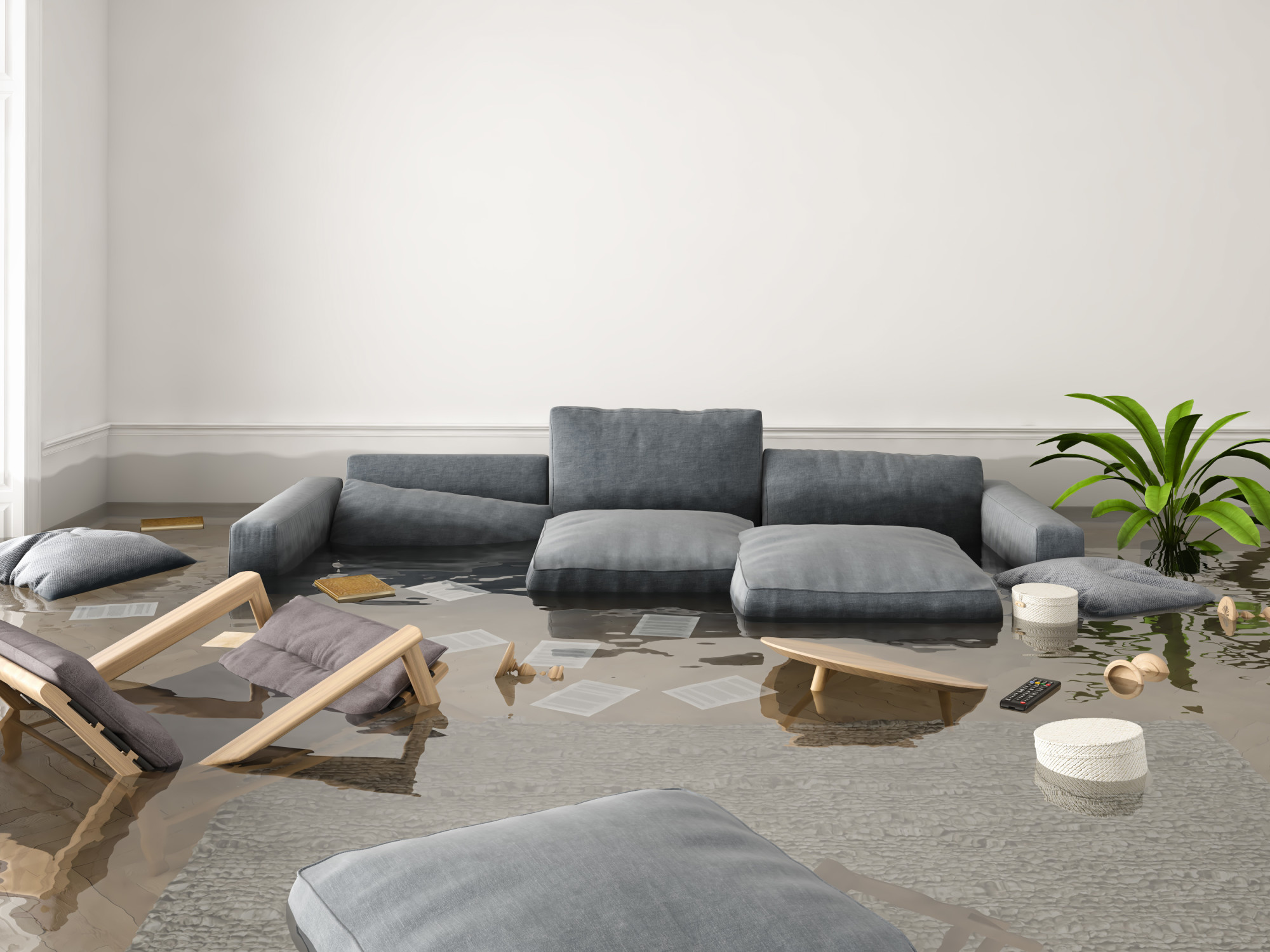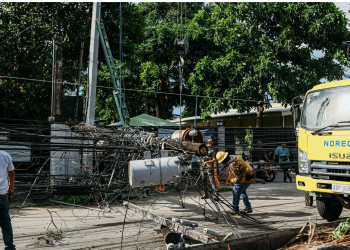Did you know that the Galveston hurricane which happened back in the year 1900 is considered to be one of the deadliest hurricanes in US history? This was a category 4 hurricane that killed more than 8,000 people.

Although there is little to no chance that such a large hurricane will hit the United States again, it’s highly recommended to try to hurricane proof your house. Especially if you live in a state where hurricanes are frequent, having a hurricane proof house can minimize the damages produced by such violent weather phenomena. Keep reading to learn more about hurricane proof homes.
1. Remove Items From Your Yard and Patio
If you hear a hurricane warning on TV or from your local radio station, it’s important to act quickly. The winds of hurricanes can be devastating, causing things to fly through the air and potentially injure people. To prevent that, make sure that you remove light items from your yard.
For example, make sure that there are no debris or objects thrown away. Any kid toys or tools should be stored safely, preferably in the garage. Make sure that you also move patio furniture because these items can also be taken away by high-speed winds.
Having a cleaner yard until the hurricane warning expires protects your property from damage and gives you more peace of mind. If you have planters or hanging lights in your patio, these should be removed too. This is just temporary until the hurricane warning passes. After that, you can resume your normal lifestyle.
2. Make Home Improvements Here and There
In case of a hurricane, some of the most affected parts of your house will be the windows and doors. These can easily be broken by violent winds or objects carried by it. To prevent that, consider making home improvements. For example, you can go for impact-resistant windows or hurricane windows. These products are made from tempered glass that’s more durable and resistant to high-speed winds.
At the same time, it wouldn’t be a bad idea to consider installing a stronger front entrance door. This door can be made from stainless steel or fiberglass. These doors can last for a lifetime, they need little to no maintenance and they cannot be blown away by storms or hurricanes. On top of that, a stronger front entrance door will also deter thieves, so you get an added benefit.
3. Consider Upgrading or Replacing Your Garage Door
Apart from the regular doors and windows, your garage door is also vulnerable to violent hurricanes and tornadoes. If this door is really weak, powerful winds can blow it away and enter your garage. Such winds might be able to push on your garage roof as well and cause massive damage. You can prevent all these nightmare scenarios by upgrading your current garage door.
Similar to the front entrance door, your garage door can also be made from metal or fiberglass. The upgrade might cost you some money, but you will be able to prevent more costly repairs if the hurricane is really violent. At the same time, a stronger garage door will also discourage car thieves and burglars. Lastly, each upgrade you make to your house windows, doors and the garage door will add to the total home value, so your investment is protected.
4. Clean Your Gutters and Ensure They Work Properly
Every house is equipped with downspouts and gutters to collect rainwater and redirect it safely away from your walkways. However, gutters need regular maintenance, otherwise, they can get really clogged. Your gutters might accumulate a lot of debris consisting of dead leaves, small tree branches, insects, and even rodents. This debris can cause blockages, making the rainwater fall all over the place during heavy storms.
In case of a hurricane, clogged gutters and downspouts will eventually make the water go over the roof and in your attic. This can be a real problem and it will cause serious damage that’s costly to fix. It’s best to simply clean your gutters at least twice a year and ensure they work properly before the hurricane season arrives.
5. Make Sure That You Have a Backup Generator
Hurricanes can get really violent sometimes. They might cause massive damage to your house and even make the power lines go down. This means that you will be left without electricity for one or more days. It can take a while until the power grid is repaired and the normal electricity supply is resumed. To make sure that you’re not left completely in the dark, get a power generator and keep it as a backup.
Such generators can be powered by diesel or another type of fuel. Others act as giant batteries. You charge them beforehand and they can provide you with electricity for a few days. Having a backup generator can be a life-saver in such unfortunate circumstances. You get to keep the essentials running such as your fridge, a portable heater, and a couple of lights.
A power generator also helps you stay connected to the rest of the world and find out news and information about the hurricane. For example, it can power a laptop, a radio, and a couple of smartphones. Make sure that you pick a generator depending on the size of your house and the number of electronic devices you want to keep functional during a blackout. Ideally, it should last you a few days.
6. Prepare a Survival Kit for You and Your Family
You never know how devastating the next hurricane can be. In many cases, it’s also followed by a flood. These natural disasters can make life really uncomfortable for you and your family members. That’s why you should prepare a survival kit to help you cope with such difficult situations.
The survival kit should include bare essentials. For example, make sure that you have a couple of dozen cans of food such as beans, chickpeas, seafood, etc. You should also have plastic bottles with gallons of water for drinking and washing. Other essential items include antibacterial wipes, tissues, a few warm blankets, spare clothing, and a portable light source.
Since it’s very likely that a blackout will follow a massive hurricane, it’s a good idea to also pack extra batteries. Make sure that you have different varieties and formats to accommodate your flashlights, radio devices, etc. Lastly, stock up on the required meds for you and your family members. The most popular meds include pain killers and band-aids.
7. Get One or Two Old-School Phones
Old-school phones, also known as dumb phones, have their advantages. They are easy to use, they can fit any pocket and best of all, they have batteries that last for weeks. This is a great benefit in case of a blackout when you cannot charge your smartphones that easily. A dumb phone can help you stay connected with the authorities as well as your family members and friends. Old-school phones are also very accessible to people of an elderly age.
8. Add Hurricane Straps to Your Roof
Most roofs are connected to the house through nails that are driven at an angle. These nails are strong enough to keep the roof in place during extreme weather conditions, including hailstorms. However, they are not strong enough to resist hurricanes. This makes your roof susceptible to serious damage. A violent hurricane can simply tear the roof from your house, a thing that costs thousands of dollars to repair.
This is where “hurricane straps” come into play. These are metallic straps that can be added to your roof to keep it in place. They are installed by professional roofers and don’t cost a lot of money. The straps will keep your asphalt shingles stable during a violent hurricane, minimizing the damage produced by this weather phenomena.
9. Park Your Car in the Garage
It’s highly recommended to keep your car in the garage most of the time, not only before a hurricane. The garage offers optimal protection against thieves as well as the elements of Nature. For example, tree branches torn by hurricanes as well as flying debris can damage the windshield and windows of your vehicle. Heavy winds might also push your car at strange angles, damaging its suspensions.
To prevent all these problems, simply park your car in the garage. If you don’t have a garage, a metallic carport will offer minimal protection as well. It’s important for your vehicle not to be parked under trees or power lines as these can cause serious damage in case of a hurricane.
Now You Know How to Hurricane Proof Your House
As you can see, it’s not that difficult to hurricane proof your house. You just need to follow simple pieces of advice and do a little bit of planning. There’s no known method to stop hurricanes yet. But you can do something to minimize the damages it produces and have more peace of mind when it hits.
For more useful tips and tricks on how to deal with hurricanes, how to prepare for them, and counter their devastating effects, make sure that you check out the other articles on our website.







